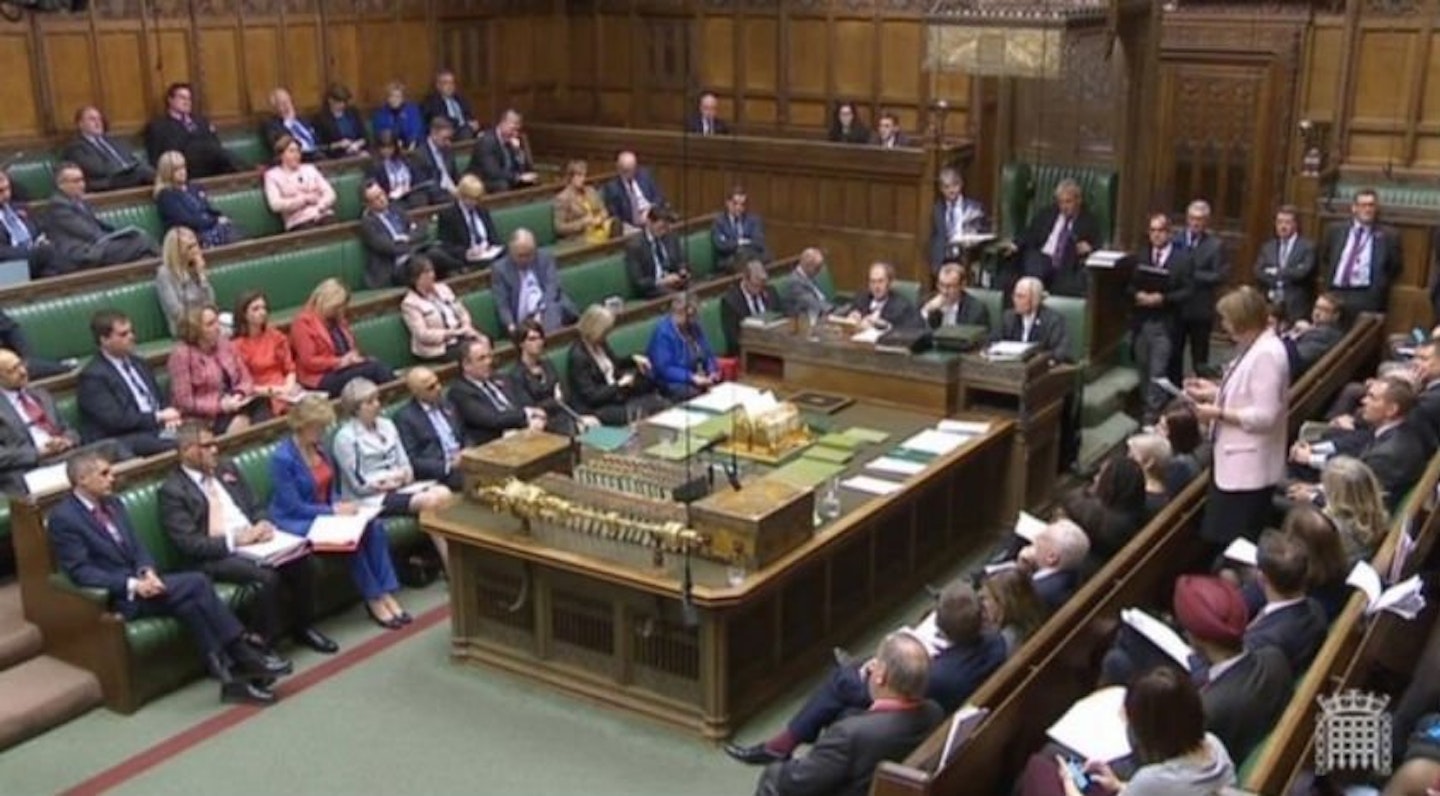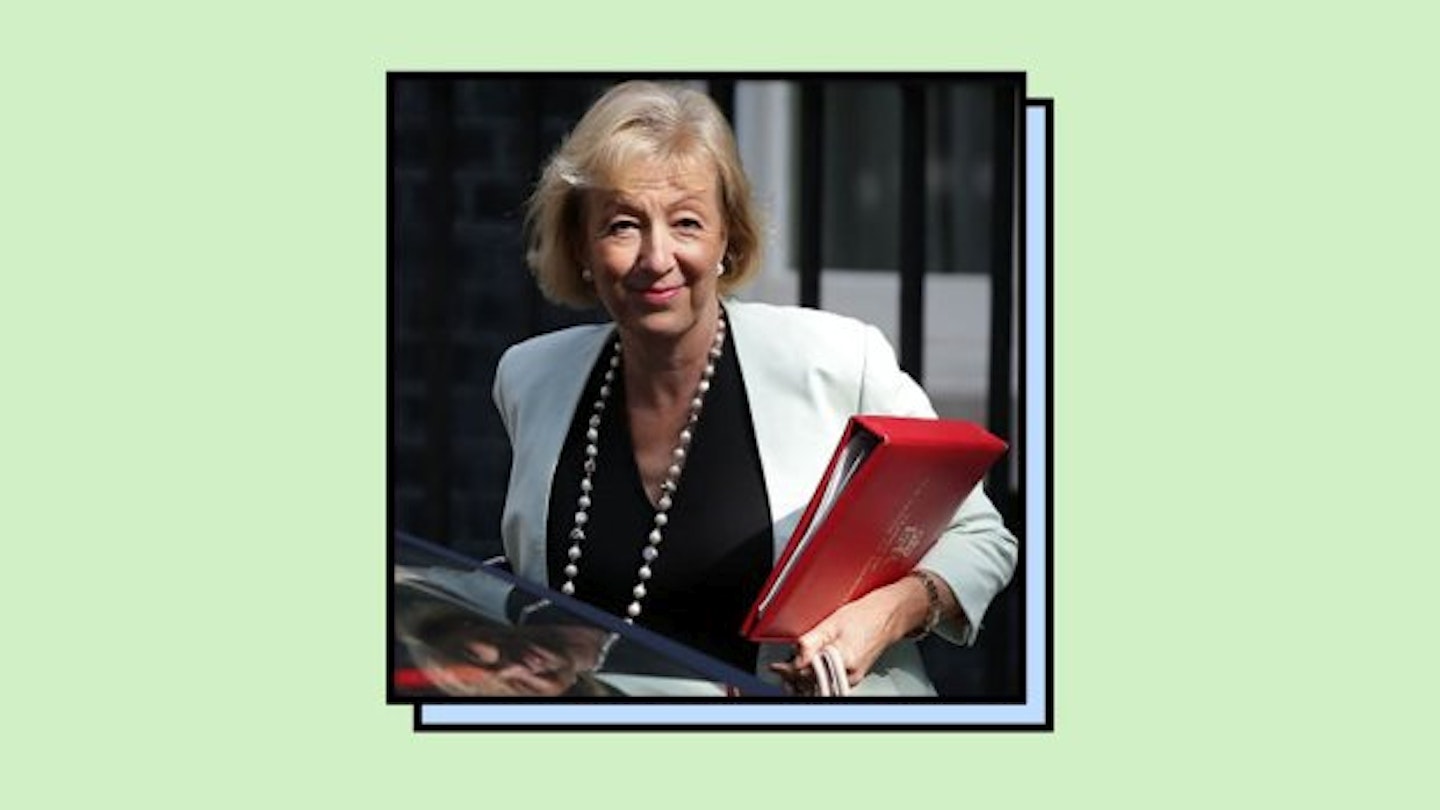Ever since the allegations against Harvey Weinstein sparked the #metoo movement the sorry state of affairs when it comes to sexual harassment and assault has been revealed across many different industries in workplaces everywhere. The latest is the House of Commons after a list was put together containing the details of no less than 36 MPs who stand accused of misconduct.
Yesterday, Conservative Cabinet minister Andrea Leadsom promised a government investigation of the allegations, as well as an imminent announcement on new plans to offer support to anyone who has experienced sexual misconduct at work in Westminster.
**WATCH NOW: ****Celebs Against Trump **
Leadsom said ‘it is a right, not a privilege, to work in a safe and respectful environment - these plans will ensure that Parliament takes a zero-tolerance approach. Parliament must take action in days, not weeks’.
However, as she spoke there was something noticeably unusual about the Commons chamber. It wasn’t the fact that a universally acknowledged but unspoken problem was finally being addressed. The striking thing about images of Leadsom addressing Parliament was the fact that the majority of people who had turned up to listen to her were women.

According to the HuffPost UK, there were 65 women in attendance and 54 men. This means that women made up nearly 54 percent of the chamber during the debate. To give you some idea of how disproportionate this is, only 21 percent or Conservative and 45 percent of Labour MPs are women. More than a third of the Conservative MPs present to hear the Urgent Question which Leadsom responded to, tabled by Labour MP Harriet Harman, were women. Despite the progress we appear to be making, these numbers are a reminder of the fact that this issue disproportionately affects women and disinterests the majority of men. This is as true in Westminster as it is elsewhere.
The Telegraph, who were behind the MPs expenses expose in 2009 suggested that this ‘sex scandal’ could be as big as the expenses scandal. It’s hard not to be sceptical about that, find a woman who isn’t aware of the scale of sexual harassment and abuses of power at work in this country? Unlike the expenses scandal, this problem was already common knowledge and not confined to the corridors of power. Parliament is only unique in that there is no central HR body and those who abuse their power are particularly egregious in that they are elected officials entrusted with our democracy.
This isn’t about a few pervy MPs, research conducted by the TUC in partnership with Everyday Sexism suggests that over half of women have experienced some form of sexual harassment at work. This is a national issue and it isn’t about consensual affairs or flirting, it’s about power abuse and assault. The two are not one and the same.
If there is a problem with the list of Conservative MPs who stand accused of abuses and misconduct and it is the same problem we have with the #metoo. There is a distinct and distinctive difference between sexual assault, sexual harassment, and impropriety. The current conversation is conflating all three as though they are one and the same, this undermines the seriousness of the matter at hand. For instance, some MPs on the list stand accused of having consensual affairs with junior colleagues while others, such as international trade minister, Mark Garnier, who has admitted to calling his secretary ‘sugar tits’ and sending her to buy him sex toys. The former is the stuff of intrigue and scandal, the second is a serious abuse of power which constitutes harassment.
That said, as a result of the list and the allegations it contains, Theresa May has vowed to investigate the reports and sack ministers involved. Speaker John Bercow has also called for a ‘zero tolerance approach to harassment in Parliament’. If this all happens it will set a much-needed precedent for how companies should deal with such behaviour and send a clear message out to perpetrators of such harassment as well as survivors and anyone who may encounter it from here on in: power will no longer protect you if you behave badly.
But the fact that more women than men are showing up in Parliament to sort this out suggests that we still have a way to go and that this is not being taken as seriously as it ought to be. The onus is still on women to reveal their experiences of harassment and assault and we are expected to suffer the consequences – which can impact our emotional health as well as our careers – in order to bring about change.
This conversation is long overdue and it needs to go down in history as a true turning point not yet another in a long line of ‘shocking’ and ‘seedy’ flash in the pan scandals. We need to differentiate between impropriety and sexual harassment, defining it once and for all so that we can protect people against it. It's not enough to sack people guilty of bad behaviour, we need new legislation as Frances O'Grady suggests in today's Guardian. Then and only then will we be able to stop sexual harassment from happening in the first place and not just responding to it retrospectively.
You might also be interested in:
Follow Vicky on Twitter @Victoria_Spratt
This article originally appeared on The Debrief.
